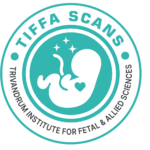Fetal Health Services
Explore advanced fetal health services, including NT Scan, genetic screenings, growth scans, and expert counseling for comprehensive care during pregnancy.
Comprehensive Fetal Care:
Expert Screening Services
Frequently Asked Questions
A TIFFA SCAN (Targeted Imaging for fetal Anomaly) is popularly known as fetal Anomaly Scan. This is a detailed Scan done at 18-22 weeks during which each part of fetal anatomy is examined to diagnose any structural anomalies. A genetic Sonogram (Evaluation of soft markus) is done together in TIFFA SCAN so as to recalculate the risk for Down syndrome following the protocols of FMF, The Absence of soft markers reduces the probability of a baby having Down syndrome.
A ratio of 1:250 is termed screen positive and hence the likelihood of the fetus having a chromosomal anomaly is higher. However, a diagnostic procedure such as chorionic villus sampling or an Amniocentesis can be done to confirm chromosomal normalcy
Multi-fetal Pregnancy reduction is defined as a first-trimester or early second-trimester procedure for reducing the total number of fetuses in a multi-fetal pregnancy to improve the perinatal outcome. It is a safe procedure with a low risk of miscarriage especially when performed before 14 weeks.
Intrauterine Transfusion is a procedure that provides blood to the fetus most commonly through the umbilical cord. It is recommended when an Rh-negative mother carries an Rh-positive fetus who is anemic.
The combined first-trimester screening test can identify a pregnancy with an increased chance of Down Syndrome (trisomy 21) and Edward Syndrome (Trisomy 18.). The test involves the pregnant woman. having a blood test together with an ultrasound scan between 11 weeks to 13 weeks + 6 days of gestational age.
The intermediate risk for trisomy 21 is defined if the combined firsttrimester Screening ratio is between 1: 250 to 1:1000. There is a recommendation to perform a superior Screening test – Non Invasive Prenatal Testing (NIPT) after 14 weeks in such cases.
Amniocentes is not usually painful. It is done as an outpatient procedure without any anesthesia. It typically takes just a few minutes during which you may lie still.
NIPT (Non Invasive Prenatal Testing) uses a pregnant mother’s blood todetect Genetic conditions such as Down Syndrome(trisomy 21), EdwardsSyndrome (trisomy 18), and Patau syndrome (trisomy 13), as the mother’sblood contains fragments of DNA the fetus. NIPT is a superior screeningtest that uses Cell-free DNA (cf DNA). It is not a confirmatory test but hasan accuracy of 99% in detecting Down Syndrome (Slightly less accuratefor detecting trisomy 13& 18). It can be done after 14 weeks of gestationalage.
Need help to book your test?
Full checkup with our PREMIUM package

